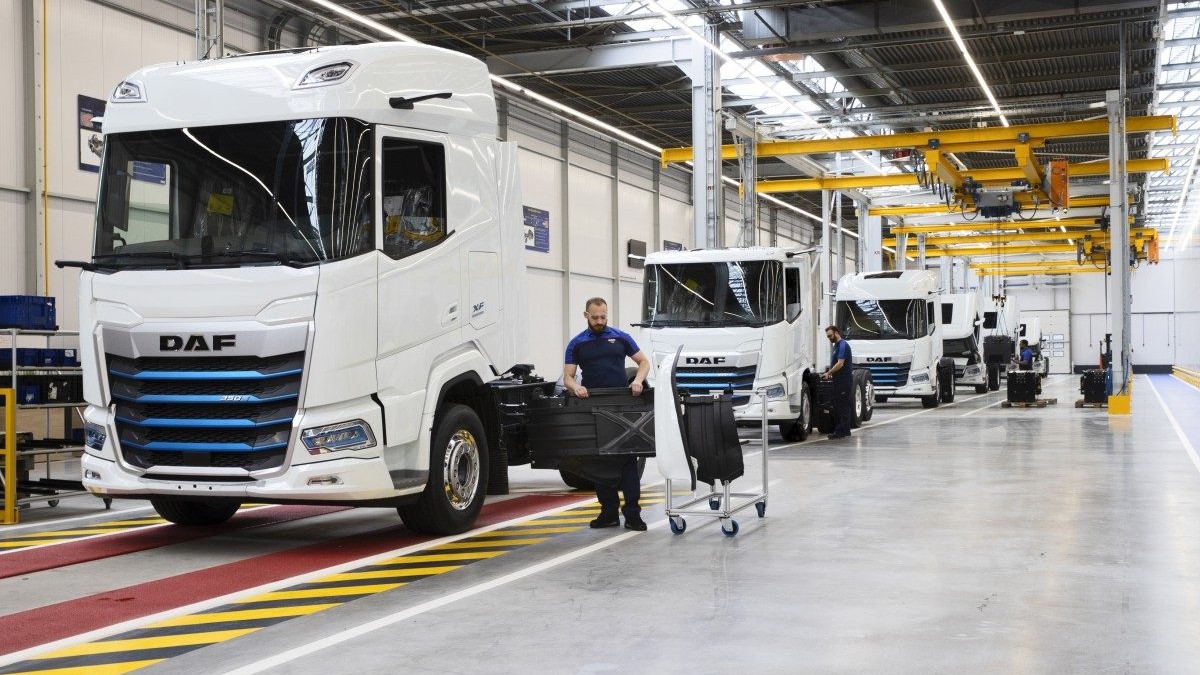DAF opens new Electric Truck Assembly plant

DAF has officially opened its new Electric Truck Assembly plant in Eindhoven, the Netherlands, with series production of the XD and XF Electric to start in the 2023 European summer.
The new DAF Electric Truck Assembly plant covers includes two sub-assembly lines for the preparation of the battery packs as well as the Electric Drive Module, consisting of the front battery pack, high voltage junction box and electrified auxiliaries. These key components as well as the e-motor with integrated gearbox are installed onto the vehicle on the main assembly line, which is almost 150m long.
DAF has built its DAF Electric Truck Assembly plant for the production of its latest generation of battery electric trucks. The New DAF XD and XF Electric are available in a range of configurations. These are powered by PACCAR e-Motors and equipped with battery packs of two up to five strings (210 to 525kWh).

The modular approach allows the trucks to be tailored precisely to customer requirements and needs. Full electric ranges of up to 500km are possible making 1000 ‘zero emission’ kilometres achievable with careful planning of routes and recharging. With fast charging of up to 350kW, battery packs can be charged to 80% of their capacity in only 45 minutes.
Production of quality validation trucks is about to start with series production of customer vehicles planned from the summer. DAF expects production to increase to thousands of vehicles per annum in the near future, in line with the increasing demand for fully electric trucks.
“The commissioning of the new DAF Electric Truck Assembly plant represents another important milestone on the road to an even cleaner future,” said Harald Seidel, DAF Trucks’ president.
“To support our customers in the transition to zero emission road transport, we go further than delivering class-leading full electric vehicles,” he said.
“Our comprehensive package includes a broad range of charging solutions, advice on planning of routes and charging, and the provision of dedicated training for drivers to get the best out of the vehicles.”





